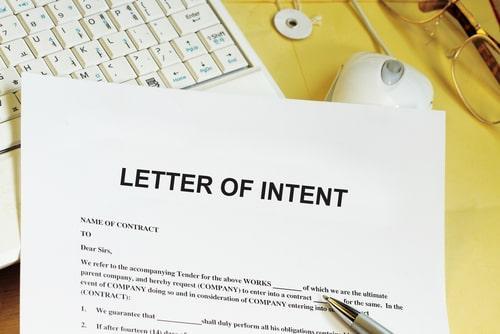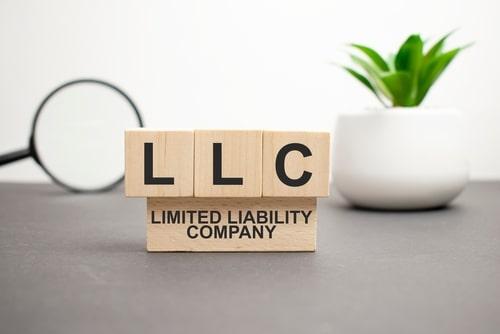Recent Blog Posts
Frequently Asked Questions About Living Trusts
 When thinking about an estate plan, most people are under the false assumption that a Trust is only meant for the extremely wealthy. This is in fact not the case. Many people can benefit from having a Trust in their estate plan.
When thinking about an estate plan, most people are under the false assumption that a Trust is only meant for the extremely wealthy. This is in fact not the case. Many people can benefit from having a Trust in their estate plan.
What is a Trust?
A Trust is a legal instrument that holds title to certain property and is subject to certain obligations, rights, and restrictions that are put in place by the Trustor. The Trustor is the person or persons who create the Trust. A living Trust means that, for the duration of the Trustor’s life, the Trust is for the benefit of the Trustor, and will only pass to the beneficiaries upon the Trustor’s death. This also means that the initial Trustee (the person who is in charge of managing the Trust) will also be the Trustor.
What is the difference between a Revocable and an Irrevocable Trust?
A Trust can be made revocable or irrevocable at the decision of the Trustor. If the Trustor creates a Revocable Living Trust, then they are able to amend or revoke the Trust at any time during their life, even after the Trust is signed. A Revocable Living Trust will be made irrevocable upon the death of the Trustor. An Irrevocable Trust is a Trust that cannot be amended nor once it is signed by the Trustor. The Trustor does not even have the power to amend or revoke the document once it is signed into being.
Estate Planning For Real Estate Investors and Landlords
 Estate planning is crucial for everyone, whether you are single or have a family. But incorporating a strong and effective estate plan is especially important for real estate investors and landlords, as these titles can open the individual up to liability if not properly protected. Another name for this form of estate planning is referred to as “asset protection”.
Estate planning is crucial for everyone, whether you are single or have a family. But incorporating a strong and effective estate plan is especially important for real estate investors and landlords, as these titles can open the individual up to liability if not properly protected. Another name for this form of estate planning is referred to as “asset protection”.
Asset protection is vital for real estate investors and landlords for many reasons. First, occurrences such as recession, death, taxes, and lawsuits serve to threaten the economic surety of individuals and families that own investment assets, such as rental properties and vacation homes. Many real estate investors and landlords improperly structure their business because they either place the properties in their individual name, or they put multiple properties under one LLC instead of distributing them to avoid liability.
The attorneys at Peace of Mind Asset Protection, LLC specialize in assisting real estate investors and landlords with coordinating a proper business structure that encompasses asset protection, while also creating a cohesive estate plan that furthers the individual’s particular estate planning goals. By focusing on business structure, asset protection, and estate planning all in one, Peace of Mind Asset Protection, LLC can effectively protect and prepare real estate investors and landlords for the uncertainties that lie ahead.
The Basics of Estate Planning and Trust
 What is Estate Planning?
What is Estate Planning?
Every person, regardless of wealth, has an estate. Your estate is made up of everything you have to your name, whether it be real property, a car, a home, savings accounts, life insurance policies, or personal property. Estate planning includes the process of determining how to distribute the possessions in your estate after you die and solidifying your wishes in the event that you become incapacitated.
Why is Estate Planning Important?
In order to make sure that what matters most to you is distributed according to your wishes, it is important to name your beneficiaries now. This will make distribution much easier in the future and eliminate potential arguments between loved ones. In addition to naming beneficiaries, estate planning should consist of instructions on how to provide for family members, explicit written protection for family members with disabilities, instructions for how to transfer your business and retirement, long term disability arrangements, guidelines for tax costs and fees, and provide instructions for how to manage your financial affairs when you are no longer able to.
Explaining the Importance of Trust Funding
 What is a Living Trust and What Does it Do?
What is a Living Trust and What Does it Do?
A "living" trust (sometimes called an "inter vivos" trust) is a trust you create while you are alive. A trust is a fiduciary (legal) arrangement that allows a third party (called the trustee) to hold title to assets (property) on behalf of certain beneficiaries. As holder of the title, the trustee is subject to the condition of keeping or using the trust property for the benefit of the beneficiary. The creator of the trust selects the beneficiaries of the trust property. Those who were selected as beneficiaries will receive the trust property when the creator of the trust dies.
Probate Court
A trust has a similar function to a will but is often a much better choice for a person looking to control what happens to their property after they pass because a trust avoids probate, where a will is always subject to probate. Probate is the legal process that a person’s estate must go through when they die either with a last will and testament or when they have no legal estate planning documents stating how they wish their estate to be distributed (this is called intestate). Probate court oversees the transfer of the estate’s property to the deceased person’s heirs, according to state law. Probate court is often time-consuming and costly because of court costs and attorney’s fees. Attorney’s fees for a probate case vary drastically depending on several factors, however, the average amount for attorney’s fees in probate cases in Illinois is anywhere from $2,500-$5,000. This amount does not include court costs, filing fees, or other fees associated with the court itself.
Spendthrift Trust and Protection of Children
 What is Spendthrift Protection?
What is Spendthrift Protection?
Spendthrift protection is the benefit provided to a trust that protects a beneficiary’s inheritance from a beneficiary’s creditors such as a divorcing spouse or a creditor such as a credit card provider or a business lawsuit or a mortgage foreclosure among other creditor issues.
One of the primary benefits of a spendthrift provision is to protect a beneficiary from their themselves. Spendthrift also is putting restrictions on a person’s inheritance with the primary intent to protect their child or children from their immaturity or lack of fiscal management skills.
Spendthrift language in a trust is required to protect a beneficiary’s inheritance from their creditors. This type of language is called a "Spendthrift Trust" or "Spendthrift Provision." Parents often desire to protect young adults (21 to 25 years of age) or with serious disability issues from themselves. A beneficiary may not be technically disabled, but parents desire to protect their loved ones from themselves. Spendthrift language provides asset protection for a trust beneficiary because their inheritance may not be assigned, encumbered and/or alienated in any way (or similar language).
What is a Letter of Intent for a Business Purchase or Sale?
 Naperville and Yorkville Letter of Intent Attorneys
Naperville and Yorkville Letter of Intent Attorneys
A letter of intent is an initial letter expressing interest in purchasing a business or franchise. The letter of intent summarizes the buyer’s intention to purchase the seller’s business (or franchise). The letter of intent contains key terms and conditions for the proposed business sale.
Benefits of Letter of Intent
The Letter of intent provides a detailed description of the proposed business deal. The letter of intent provides a specific description of the timeframe proposed for completing the proposed deal. The letter of intent should summarize the following information:
-
Prices and Terms such as the business to be acquired
-
Outline of the payment and financing terms (if applicable) including the down payment of earnest money
-
Conduct in the ordinary course such as the seller continuing the status quo of their business
Why Every Will or Trust Should Contain Special Needs Language
 A special needs provision should be included in every person’s Will or Trust. Not only does it protect loved one that has special needs at the time your Will or Trust is executed, but it also is effective in the event a loved one who was not disabled at the time but becomes disabled after the execution of the Will or Trust.
A special needs provision should be included in every person’s Will or Trust. Not only does it protect loved one that has special needs at the time your Will or Trust is executed, but it also is effective in the event a loved one who was not disabled at the time but becomes disabled after the execution of the Will or Trust.
What Is a Special Needs Trust?
A special needs trust provides financial support for your loved one with special needs, while at the same time, does not disqualify them from receiving or continuing to receive any government benefits. This includes benefits like Medicaid and Social Security, which are often on an income contingency, meaning if you make over a certain amount of money, you can be disqualified from receiving those benefits.
How Do You Set Up a Special Needs Trust?
A special needs trust is included in your overall Trust document or in your Will. It is helpful to have an experienced and specialized attorney assist you with setting one up. This way, you can be sure that any personalization is tailored to your specific circumstances. The purpose of a Trust, in simple terms, is to assign someone (called the trustee or executor) to manage what you have decided to put in it, upon your passing. The person you decide to assign is legally bound to the terms you specify in your Trust and must carry it out exactly as it has been written by you.
Professional Limited Liability Company v. Limited Liability Company: What is a PPLC?
 What is a Limited Liability Company (LLC)?
What is a Limited Liability Company (LLC)?
We’ve all heard the term LLC before but, do you know what it means and what it does? LLC stands for Limited Liability Company, which is a popular structure used to form a business.
An LLC is essentially a mixture of the best parts of a Partnership business structure (including the tax benefits) and the best parts of a Corporation business structure (including the protection from personal liability).
Partnership Business Structure
There are different types of Partnership business structures. A General Partnership requires no formal formation process, while others simply require a filing with the State. Those that own a Partnership are called Partners. A Partnership business structure offers no personal liability protection in the event that the Partnership or another Partner were to be sued. Simply by the nature of being a Partner in a Partnership, they are subject to liability personally (this includes their own personal assets that have no connection to the business), even if they had nothing to do with the event giving rise to the lawsuit.
Why Living Trusts are for Normal Middle-Class Couples
 Trusts are not simply for the ultra-wealthy. Trusts are a great tool for those with modest assets that wish to protect those assets and save unnecessary expenses and arguments between loved ones after their death.
Trusts are not simply for the ultra-wealthy. Trusts are a great tool for those with modest assets that wish to protect those assets and save unnecessary expenses and arguments between loved ones after their death.
What is a Living Trust and What Does it Do?
A Trust is a fiduciary arrangement that allows a third party (the trustee) to hold title to assets (property) on behalf of certain beneficiaries. The creator of the Trust selects the beneficiaries of the Trust property. As holder of the title, the trustee is subject to the condition of keeping or using the property for the benefit of the beneficiary. A "Living" Trust (sometimes called an "inter vivos" Trust) is a Trust you create while you are alive.
Inter Vivos Trust Attorney in Yorkville and Kendall County
A Trust has a similar function to a will but is often a much better choice for a person looking to control what happens to their property after they pass. The creator of a Trust selects who will be the beneficiaries. Then, those who were selected will receive the Trust property when that person dies. When two people are married, they have the option of setting up a joint Trust.
Estate Planning: Why a Last Will and Testament is NOT your Best Option (and a Living Trust is)
 Yorkville and Oswego IL Estate Planning Attorneys
Yorkville and Oswego IL Estate Planning Attorneys
What is a Last Will and Testament?
A Last Will and Testament is a written, legal document that expresses a person’s wishes as to how their property (known as their estate) should be distributed after they pass. A Last Will and Testament also designates a person (known as the Executor) to manage the estate until it is fully distributed. When the creator of the Will dies, the Will must then go through a time-consuming and often costly process called probate court.
What is Probate Court?
Probate is the legal process that a person’s estate must go through when they die either with a Last Will and Testament or when they have no legal estate planning documents stating how they wish their estate to be distributed (this is called intestate). Probate court oversees the transfer of the estate’s property to the deceased person’s heirs, according to state law. When a deceased person does have a Will, the court must first authenticate the Will and then authorize the Executor of the Will to pay any leftover expenses from the estate and then distribute remaining estate property according to the terms of the Will.
Questions?
Contact Us Today
Call 630-780-1034 or fill out the form below to set up a free consultation today:
The use of the Internet or this form for communication with the firm or any individual member of the firm does not establish an attorney-client relationship. Confidential or time-sensitive information should not be sent through this form.
I have read and understand the Disclaimer and Privacy Policy.















